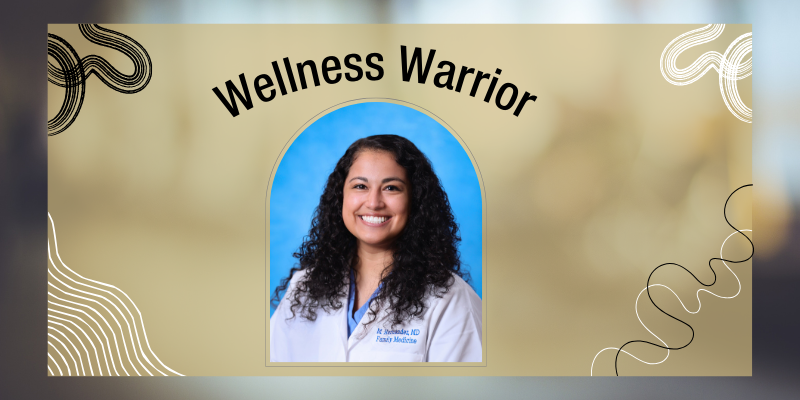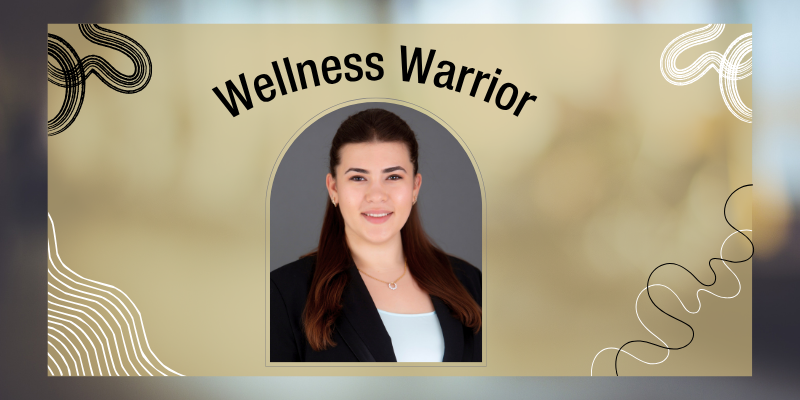Danielle Ostendorf, MS, PhD, CEP, serves as an Assistant Professor at the University of Colorado Anschutz Medical Campus within the Division of Endocrinology, Metabolism, and Diabetes. Specializing in promoting long-term physical activity adherence in adults with overweight or obesity, she has led numerous studies at the CU Anschutz Health and Wellness Center, with several published in medical journals. Her research continues to yield findings that advance our understanding and treatment of chronic diseases and weight management.
We recently interviewed Ms. Ostendorf about her journey into this field and her current research endeavors, shedding light on her innovative approach to weight loss and chronic disease prevention.
Wellness Connections: What inspired you to pursue a career in wellness and research, particularly in the world of weight loss?
Danielle Ostendorf: When I was working on my bachelor’s degree in Exercise Science at Indiana University of Pennsylvania, I had the opportunity to shadow an open-heart surgery focused on the removal of an aneurysm. I witnessed a person’s chest being sawed open, and their heart being put on a heart-lung machine to help pump blood through their body during the surgery. I remember thinking that if we had a stronger focus on disease prevention in our society, this person may have been able to avoid surgery. My goal is to prevent heart disease (and other chronic diseases) from ever occurring in the first place, so no person has to ever get to the point of needing intensive treatment such as open-heart surgery. In my personal life, I have witnessed all the amazing things that can come with having a healthy lifestyle – I know that I am more confident, happier, stronger, and less stressed when I practice what I preach. My goal is to be able to share what I am learning with the rest of the world, so others can reap the benefits of living a healthier life.
Wellness Connections: How do you approach designing research studies that aim to improve weight loss outcomes?
Danielle Ostendorf: The majority of my inspiration comes from working directly with adults who are attempting weight loss. When I hear the personal stories and their struggles, I learn about the major barriers and successes and then design the program to address those specific things. For example, when I first started working at AHWC in 2013, I provided exercise behavioral support sessions for adults who were enrolled in a behavioral weight-loss trial. I noticed that most of our participants were achieving the high levels of physical activity needed for weight loss maintenance during the first 6 months of the program. But, after 12 months of the program, the majority of participants reverted to their baseline levels of activity. This observation helped me realize that our interventions were not successful long-term. However, there were a select few participants who did maintain high levels of activity long-term and I asked them – how were you able to be so successful? During my conversations, I learned that people who enjoyed exercise were more likely to stick with it long-term, and this was confirmed in my analyses I did for my dissertation. My analyses showed that people who were motivated to engage in exercise for more intrinsic reasons (enjoyment) were much more likely to maintain their increases in physical activity 12 months after the program started. Now, I am designing and researching a physical activity support program to help target improvements in intrinsic motivation and I’m hopeful that this approach will result in improved long-term maintenance of physical activity for adults attempting weight loss.
Wellness Connections: Can you share some key findings from your research studies that have influenced weight loss strategies or treatments?
Danielle Ostendorf: A key finding that I think is very relevant for adults struggling with weight, is that when someone attempts to lose weight, there are physiological mechanisms at play that try to counteract the weight loss attempts (you don’t feel as full after eating the same meal, you feel hungrier throughout the day, you burn fewer calories at rest than at your starting body weight). The body prefers to be at a higher weight and internally fights a person’s weight loss efforts. High levels of physical activity can help to counteract these physiological mechanisms and promote weight loss maintenance. This is why I have focused most of my research on strategies to help people adopt and maintain high levels of physical activity. Another key finding is that when people find physical activities that they enjoy, they are much more likely to keep up with physical activity long-term. A third key finding is that when you remove the “all-or-nothing” mindset (or the idea that if I can’t do 30 minutes of exercise, then why bother doing any exercise at all), then increasing your level of physical activity becomes much easier.
Wellness Connections: How do you think your research findings can be translated into practical, real-world interventions or programs to help individuals with overweight or obesity?
Danielle Ostendorf: I think our messaging that promotes behavior change is very important. We have to create messages that are personally motivating to people and ideally focus on the more short-term benefits. Humans tend to favor immediate, short-term rewards (such as less stress, more energy, and better sleep) over long-term benefits (such as disease prevention). So when trying to motivate a person to engage in a healthy lifestyle, it may be more effective to have them focus on things that are happening that day or that week, instead of a year from now. For example, the idea of less stress may be more motivating in the moment compared to the idea of preventing chronic diseases, which can happen, but much later down the road. Messages that we promote in the program I have designed include: “All movement counts. It all adds up.” “Move in ways that feel good and/or that you enjoy” “By moving more, you are taking better care of yourself.” These are inspired by several other researchers in this space, including work by Michelle Segar at the University of Michigan.
My goal is to prevent heart disease (and other chronic diseases) from ever occurring in the first place, so no person has to ever get to the point of needing intensive treatment such as open-heart surgery.
Wellness Connections: How do you stay motivated and continue to innovate in your research?
Danielle Ostendorf: I’m extremely passionate about helping people find ways to be the best versions of themselves. I really want to leave this world a much better place than how I came to it. My hope is that everyone finds happiness and well-being and my small contribution can make a difference in people’s lives. I’m an optimistic person and like to view the glass as half full. I also love to attend national and international conferences so I can learn about what other researchers are doing and how to continually optimize both our interventions and our research approaches.
Wellness Connections: How do you think the CU Anschutz Health and Wellness Center can continue to lead in the field of weight loss research?
Danielle Ostendorf: The AHWC is perfectly positioned to be a leader in the field of weight loss research. Our most valuable asset is our researchers – we have an incredible group of diverse, colleagues that collaborate to study obesity from multiple perspectives (biological, psychosocial, environmental, behavioral).
Wellness Connections: How do you envision your research impacting the programs and services offered here at the CU Anschutz Health and Wellness Center?
Danielle Ostendorf: I am developing and researching a physical activity support program to help adults adopt and sustain the high levels of physical activity that are needed for weight loss maintenance. The goal of this program is to teach people that all movement counts and to focus on finding and doing physical activities that are enjoyable. My hope is that this program can be offered at the AHWC and other locations for an affordable cost so we can help as many people as possible. Our next step is to translate this program into Spanish so it can help even more people. I received funding from our Colorado Nutrition Obesity Research Center (NORC) to translate and adapt the program for Spanish-speaking adults and I’m very excited about these next steps!
Visit some of her published works below:
The Microbiome, Epigenome, and Diet in Adults with Obesity during Behavioral Weight Loss
New insights in the mechanisms of weight-loss maintenance: Summary from a Pennington symposium
Impact of the built, social, and food environment on long-term weight loss within a behavioral weight loss intervention




